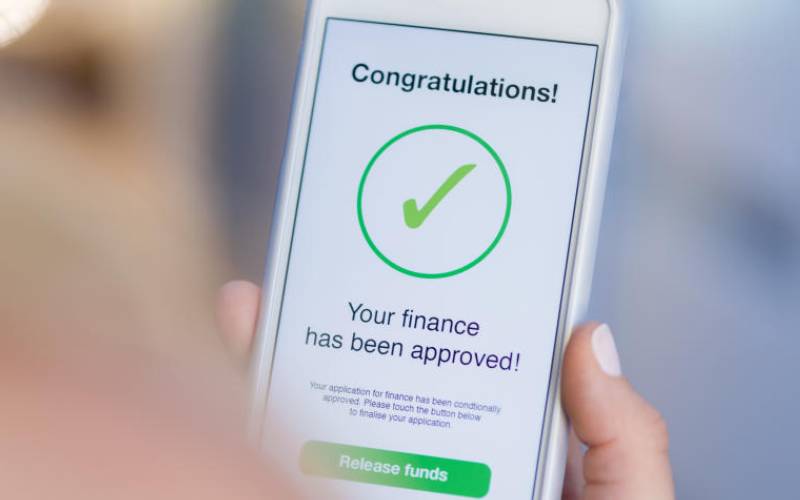







































From ‘urgent ₦2k’ to real credit: How Oxygen X wants to help Nigerians breathe
 OXY
OXY
 X
X
 X
X
 X
X
 X
X
Nigeria’s lending ecosystem today sits at a complex crossroad. Economic reality has forced a major behaviour shift. More Nigerians than ever are willing to borrow digitally. But the same economic turbulence, inflation that pulverises purchasing power, a weakened currency, and suppressed income growth, have turned credit from convenience into survival.
The question now isn’t whether digital lending is necessary. It’s whether it can evolve fast enough to meet the scale and seriousness of the need. This evolution isn’t just about issuing more loans. It’s about the kind of loans that matter. And it’s about who gets included in the next phase of financial access.
Few players articulate that shift more clearly than Dan Watts, Acting CEO of Oxygen X, who says that what’s changing most dramatically isn’t technology, it’s consumer urgency.
“One of the most significant shifts in digital lending right now is the growing urgency for accessible credit, driven by rising inflation and economic pressures. More Nigerians than ever are seeking financial support, yet traditional and informal lending channels are falling short,” Dan Watts says.

This observation is key: as liquidity tightens in traditional banking, demand surges in the digital ecosystem. But if digital lenders merely recreate old barriers with new interfaces, the industry’s promise falls apart. Watts frames the gap not as a business opportunity first, but as a responsibility.
“This unmet demand presents a powerful opportunity, and responsibility, for digital lenders to step in. That’s why we’re focused on offering first-time users higher loan amounts, helping them bridge immediate financial gaps while building long-term trust.”
Unlike lenders who offer meagre loan amounts that can barely buy groceries, Oxygen X is competing on meaningful credit, the kind that can genuinely stabilise a household, support business continuity, or finance emergencies.
And yet, higher credit isn’t a standalone innovation; it must stand on the pillars of trust, risk intelligence, and regulatory partnership.
Read also: Oxygen Digital Bank is Forcing Traditional Banks to See the Potentials of the Gig Economy
Nigerians are learning the cost of ‘invisible’ profiles
The idea of credit scores isn’t new in Nigeria, but widespread awareness is. Watts believes consumers are finally connecting the dots between credit history and opportunity.
“Another key change is the increasing awareness of credit history and its impact. Consumers are beginning to understand that a strong credit profile opens doors to better financial opportunities.” Digital lending has become a crash course in credit for millions. Every repayment builds a footprint. Every default leaves a scar.
Yet Watts acknowledges this knowledge gap isn’t fully closed:
“While this shift is promising, there’s still work to be done in educating and empowering users to manage their credit responsibly.”

That means lenders must take the lead in financial literacy because the success of the ecosystem depends on consumer success. An informed borrower is not just a safer customer; they are a repeat customer.
Regulation has entered the chat, and that’s a good thing
For years, digital lending in Nigeria operated in a regulatory grey area. Then everything changed. Consumer protection complaints rose, aggressive debt recovery tactics made headlines, and the Central Bank stepped in with stronger oversight.
Watts doesn’t see this as friction. He sees partnership:
“At Oxygen X, we believe that meaningful innovation in lending must go hand-in-hand with proactive regulatory engagement.”
The company engages directly with the CBN’s OFI desk, aligning with broader financial inclusion goals. Their approach reflects an industry paradigm shift – compliance is now a strategy.

“What we’ve seen is encouraging: regulators are increasingly attuned to both consumer needs and the realities faced by industry players.”
The biggest enabler to emerge? The CBN’s regulatory sandbox.
“The introduction of the regulatory sandbox is a clear signal that the CBN is creating space for responsible innovation. It allows forward-thinking companies like ours to test new solutions in a controlled environment, accelerating progress while safeguarding consumers.”
In short, the era of “move fast and break things” is over. The future belongs to those who can innovate without casualties.
The real challenge: Moving from ‘fast loans’ to ‘impact loans’
It’s no longer enough to approve ₦5,000 here and ₦20,000 there. Such loans fill short gaps, but they don’t improve economic resilience.
Watts sees this clearly:
“While many lenders offer quick fixes, these rarely move the needle for individuals facing real financial challenges. With inflation and currency devaluation eroding purchasing power, the need for substantial, accessible credit has never been more urgent.”
But meaningful credit also multiplies risk unless lenders rethink underwriting. That’s where Oxygen X believes it has built its competitive advantage.
“We believe lenders must rethink their risk models and product design to meet this demand. That’s why we’ve built robust systems that allow us to confidently offer higher loan amounts to first-time users—without compromising on risk management.”
The message is clear: lenders must match the moment.
If traditional data excludes most Nigerians, alternative data unlocks them.
Phone usage, behavioural patterns, digital payments, transaction footprints, these are becoming the new credit bureau. And automation isn’t just cost efficiency, it’s consistent fairness.

“At Oxygen X, we’re leveraging AI not just to streamline operations, but to build a smarter, more inclusive lending system.”
The company’s decisioning engine marks a shift from rigid scoring to dynamic understanding:
“By analysing alternative data like transaction behaviour, we’re able to assess financial credibility beyond traditional metrics. This enables us to offer substantial loan amounts to new customers who might otherwise be excluded from formal credit systems.”
And scale isn’t worth much if trust collapses:
“Technology is helping us scale responsibly by making credit more accessible, while also reinforcing trust through data-driven transparency.”
This is where the industry’s future will be won, not on speed, but on confidence.

